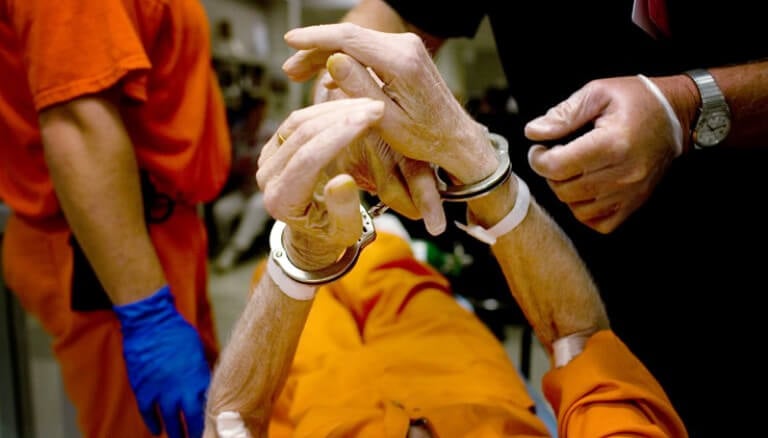
Pegah Memarpour, freelance columnist for Pardon Applications of Canada, explores a significant strain on the health care system for inmates in Canada, and suggests that those behind bars may be subject to a “prisoner first” mentality when it comes to our most basic human right.
Having access to health care is seen as a basic human right given to everyone in every part of the world. Even individuals incarcerated inside prisons – who are stripped of many other rights – are given access to health care. Whether health is a priority in these institutions, however, has been the subject of significant debate.
In 2013 (and for many years prior), health care made up the majority of prisoner complaints, approximately 11.9%. These exceeded complaints against staff, conditions of confinement, segregation, and grievances.
Corrections Service Canada (CSC), responsible for over 15,000 prisoners, is in control of the delivery of health care to this population. However, the CSC’s main concern is the security and safety of those within their facilities and the greater community. As a result, health and health care services take a back seat to security in the majority of cases.
That being said, health care is still deemed important. Within all institutions prisoners are given access to doctors, nurses, dentists, and some specialists. However, the significant number of prisoner complaints that have arisen around access to the health care reflects how these services are limited or delayed because of the priority given to security and confinement.
“In 2013 (and for many years prior), health care made up the majority of prisoner complaints.”
Howard Sappers, the Correctional Investigator of Canada, suggests that it is merely how prison health care is structured and delivered that results in an inadequate delivery of services. Therefore, it is not that the services are unavailable or that inadequate care is provided by the health professionals. It is simply the fact that health care is being delivered in this unique setting.
Overcrowding, segregation, strict confinement, use of force, and stringent controls, are all characteristics of the prison system that do not promote health or make health care delivery easier.
For example, all institutions have available health services. However, many prisoners are moved around to different institutions regularly. These institutional transfers occur for a variety of reasons, including, space, security measures, safety of the prisoners, requests, etc. These transfers cause delays and interruptions to treatments, and even force some prisoners to re-seek particular services after transferred. In turn, negatively impacting their experience and their health.
Regardless of the fact that health care services make up the majority of institutional complaints, CSC continues to spend over $2 million annually on prison health care. Meaning the CSC spends approximately $6,000 – $9,000 a year per prisoner on health services.
“Unfortunately, with overcrowding on the rise and 1 out of every 5 inmates over the age of 50, it is speculated that this cost and strain on the system will continue to grow.”
These figures are not necessarily surprising as an increasing number of prisoners are suffering from substance abuse, mental health, HIV and Hep C. Additionally, many of those incarcerated were previously living in poverty and chronically under-employed, which is said to contribute to poor health.
Unfortunately, with overcrowding on the rise and 1 out of every 5 inmates over the age of 50, it is speculated that this cost and strain on the system will continue to grow.
The strain on the system is increasingly noticed, as the need for health practitioners and nurses within these institutions are progressively rising. Although there are 1,200 health care professionals employed by the CSC, there continues to be an 8.5% vacancy rate for health care employees. The difficulties with staffing, retention and recruitment experienced within the federal prisons further impact how prisoners access and receive care.
Those locked away in our penal institutions have limited control over many aspects of their lives due to their confinement, and it appears that their health is one of them. Prisoners locked away in their cells – some for up to 23 hours a day – have limited opportunity to “shop around” for a doctor or seek a second opinion.
The consequences of prison health care is far reaching and goes way beyond the prison walls. For one, the majority of prisoners are released eventually. With limited or inadequate access to health services inside the institution combined with an increased demographic needing more health care (e.g., over 50, HIV positive, mental health), the individuals released from prison will not be in the best state health wise. Therefore, they will need a greater amount of support upon release.
Even though access to health care is seen as a basic human right, the limitations in service delivery sheds light on the fact that these people are seen as prisoners first, and patients second in the eyes of the institutions.
Pegah Memarpour is a freelance columnist for Pardon Applications of Canada, the nationwide processing firm for Canadian Pardon (Record Suspension) & U.S. Entry Waiver applications. The opinions expressed are that of the author and do not necessarily reflect those of Pardon Applications of Canada. For a list of statistical references used in this article, or more information on Pardon Applications of Canada, call 866-383-9744 or email [email protected].
PAC’s Ongoing Service Commitment
Email [email protected]
Schedule a Call https://www.pardonapplications.ca/schedule-a-call/
My Account Dashboard https://dashboard.pardonapplications.ca/


